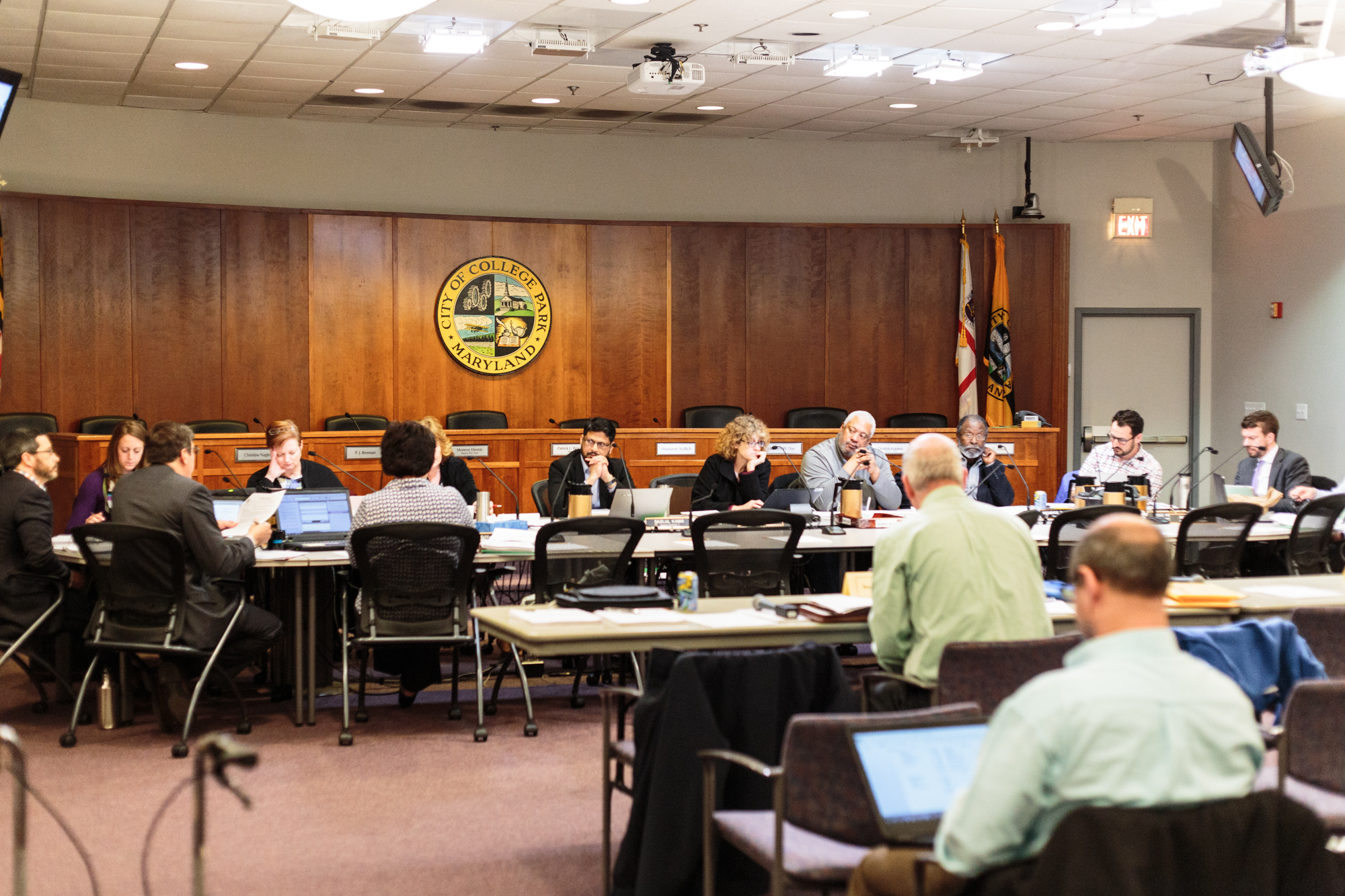District 3 Councilman Robert Day has seen the effect the College Park City Council has had on local students through education funding.
“To see the look on [students’] faces … that is a feeling you can’t take away, no matter what,” said Day, a College Park Academy board member who has a wife on the Education Advisory Committee and two sons who are either in or through the Prince George’s County school system.
After weeks of discussion, the council voted 5-4 during a special session on April 19 — with Mayor Patrick Wojahn as the tiebreaker — to pass a motion for how the $80,000 in the city’s Educational Improvement Fund that was initially set aside for education in the fiscal 2016 budget would be spent.
The motion, proposed by District 3 Councilwoman Stephanie Stullich, said of the $80,000, $20,000 would return to the council’s pool of general funds.
The council will then spend the maximum amount needed for scholarships for residents who apply to University of Maryland summer camps, and the rest of that $60,000 would go to the city’s public schools — possibly as grants to boost students’ literacy levels.
“I think it’s the right thing to do,” Day said. “I think it’s the right way to support the children of College Park, [and] I think it’s the right way to show that we are committed to the education of our children in College Park.”
The specific uses of the public school funding will be decided later on by the Education Advisory Committee. However, the council, committee Chair Carolyn Bernache and Peggy Higgins, director of Youth, Family and Senior Services for the city, discussed potential options that included giving grants as part of a literacy initiative.
Bernache, who has taught in the county’s public schools since 1968, said the council asked them to look at the Educational Improvement Fund money and see how it could be used to support the city’s schools.
“We came to the conclusion that we needed to go out to our principals and see if an additional grant would be helpful for them in supporting the literacy initiative that [Prince George’s County public schools] ha[ve] initiated,” Bernache said. “We thought that would have the most impact for our students.”
Bernache said the growing number of standardized tests in public schools has raised literacy levels that students must meet. With this funding, each school would have its own plans for focusing on academic achievement, with specific attention to literacy to help address struggling students. Higgins added.
The proposal was met with some resistance from council members, such as District 1 Councilwoman Christine Nagle, who said there are other ways to be involved with schools besides giving grant money.
“I don’t feel that just because something’s in the budget that we have to spend the money,” she said. “I think we need to think long and hard about all the money that we spend, and … when the council has the ability to say ‘no’ to something, we don’t have to keep talking about it until we change our mind.”
District 2 Councilman P.J. Brennan said he supported the motion and promoting literacy in schools, but added it wouldn’t fix other problems in local schools.
“The proposal of this very direct program in promoting literacy … I don’t see it as correcting a larger systemic issue,” he said. “I don’t see it as a Band-Aid on the larger issues that people might have with the education system.”
But Stullich emphasized the impact it would have on the public schools, which she said was “one of the biggest barriers” in making the city desirable for current and potential future residents.
“This is not a long-term solution, but it is something,” she said. “It sends a very important message to people living in College Park or people thinking of living in College Park.”



